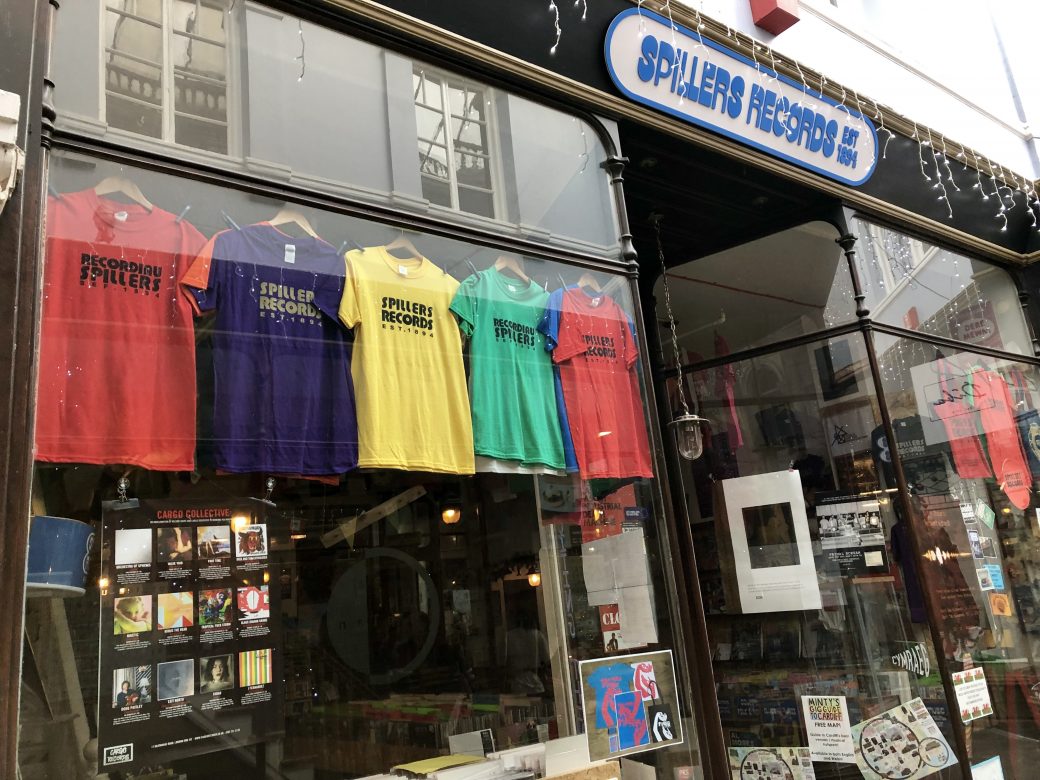Walking through one of Cardiff’s many bustling arcades, you wouldn’t be faulted for letting this nondescript store go by unnoticed. For those of us who aren’t “in the know”, our eyes slide from the coffee shop directly across to the high-end clothing boutique next to it. Yet, for some customers, Spillers is part of their weekly, if not daily routine.
A Historical Overview
Opened in 1894 by Henry Spiller, this shop has made it through many radical changes brought on by the new millennium and the diversification of public music consumption. Entering the 20th century, Henry opened his business selling phonograph machines and equipment, moving on in due course to musical instruments, pre-recorded music and various pieces of merchandise. Now, in our modern day era of direct downloads and streaming services, I went investigating into why this outwardly unremarkable store has actually made itself a staple in the Cardiff music scene.
The rise and fall of the record industry is one that can be largely attributed to the momentum and development of technology during the turn of the century. Within fifty years, the music industry saw the creation and obsoletion of many music making mediums; wax cylinders, vinyl albums, cassette tapes and compact disks all gone the way of the dodo bird. But did they truly disappear? Within the past decade there has been a great resurgence in historical mediums, specifically vinyl records.
This is where Spillers comes in.

The Challenges Faced by Small Businesses
In a 2012 interview with The Guardian, Ashli Todd, co-owner of Spillers, explains that she doesn’t feel streaming and technologies evolution is solely at fault for record store decline:
“For us it’s more of a problem that online sellers can bring in stock on the cheap through the Channel Islands”
This VAT exemption loophole was closed the following year, however. it hints at a larger problem within our wider consumerist society. The challenge between large-scale convenience over community supported small business. A challenge which Spillers has been navigating by creating, consciously or otherwise, its own support network of music consumers. Reaching out to a couple of their customers, who are avid vinyl listeners, I asked them the following questions :
“In your opinion why are records, and by extension shops like Spillers still around?
Why do you personally prefer records over other types of music media?
It may be impossible to know for certain however if you were to take a guess why do you think Spillers has survived and prospered in Cardiff for so long? Especially since it’s not the only record store in the city?”
What Have We Learned?
The answers I got back were all indicative of one main theme. The fact that, at its core, Spillers brings an individual, personalized approach to the sale and consumption of music which this industry has seemingly lost touch with. So, it’s not so much about streaming replacing the music store as it is about both of them finding their own niche within the wider market.
